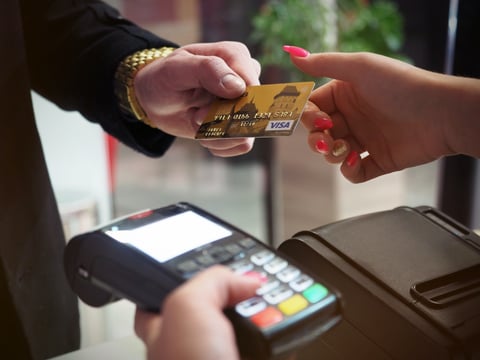What is the right way to use a credit card?
A credit card can be a very effective tool. However, when used irresponsibly, a credit card can lead to crippling debt.
Four benefits of having a credit card
1.Easily accessible cash in advance—particularly for big purchases.
If you don’t have the cash readily available for a purchase, you can use your credit card and still make a purchase. If an emergency that requires money suddenly arises and you don't have an emergency savings fund, you can also use your credit card to bail you out.
Having an emergency savings fund is essential to decrease your reliance on credit.
Read: Why you need an emergency fund
2.A method to build your credit
A credit card can be a good financial tool for building your credit. This is especially important if you are thinking about taking out a loan for big ticket items like a home or car.
One of the requirements for being approved for a loan is having a good credit history. Credit lenders such as banks will look at your payment history to see if you have a track-record of being able to make your payments consistently and on time.
If you have no debt, or you haven't taken out any credit, your credit score will be 0, and you won't be approved for a loan.
3.Secure payments without having to carry cash around
Using your credit card is a secure way of paying for items without having to work with or carry cash.
4. An opportunity to pay the cost price if you pay the outstanding balance within the interest-free period
If your bank or credit lender offers an interest-free period, you should know how long this is for. The reason for this is it could really be beneficial when making your repayments.
Moku insight: The common interest-free period amongst South African banks is 55 days.
Credit does not equate to wealth
A big mindset shift many of us have to make is that buying things on credit to appear wealthy does not make you wealthy.
5 Tips for effective credit card use
1. Pay the full outstanding balance and don’t take any balance to the next month
If you don’t pay the full balance on your credit card, and you instead, make minimum payments, you will be charged interest on the remaining balance. This means you could end up paying a lot more than the original cost of the item or service you paid for.
Moku tip: The problem with credit card debt is not necessarily the debt itself, it is the interest charged on the debt.
This is why it’s essential to only buy what you can actually afford to pay back in full.
2. Know the interest rate of the credit card you’re using
You can’t guarantee that you will always pay the full outstanding balance, so it’s always important to know what the interest rate on the credit card you’re using is. This way you can also compare and get the lowest interest rate with the different banks.
3. Keep track of what you’re spending and using your credit card for
Remember you are using borrowed money. It’s not free money and you still have to pay it back. While it’s easy to swipe, remind yourself that it’s also very easy to get to a situation with debt and credit that you can’t manage. This is not something to be ashamed of, this is just the reality of credit.
4. Make use of the benefits that your credit card offers
Different lenders usually offer benefits with their credit card services. To ensure you are making your credit card work for you, you should use the benefits that come with credit cards too.
An example could be the uCount rewards system that Standard Bank uses. With this system, you can accumulate points when you use your Standard Bank credit or debit or cheque card. You can then use these points to earn rewards by exchanging the points for selected items at partnered retail stores.
5. Watch your credit card usage (credit utilization ratio)
Even though your limit on your credit card may be R25 000, if you are not able to pay that balance in full the following month, you should not be making use of all the credit available to you.
For your credit score, it is also good practice to use 50% or less when making use of the credit available. This indicates that you do not overly rely on credit to maintain your lifestyle.
6. Don't use a credit card to pay off debt
You can't get rid of debt by creating more debt. If you find yourself in a situation where you're relying on credit to buy essential items or as way of just getting you to the end of the month until you get paid, you could be over-indebted.
Read: How do you know if you're over-indebted?
What is the cash limit on a credit card?
The cash limit on a credit card is dependent on the type of credit card you have and which credit lender you are with.
What is the minimum income required when applying for a credit card at popular South African banks?
Standard bank: Standard Bank's Blue and Gold credit card requires a minimum monthly income of R5000.
FNB: The entry-level credit card at FNB (Aspire) requires a minimum monthly income of R7000.
Absa: The Gold credit card at Absa has a minimum monthly income requirement of R4000.
Nedbank: The Gold credit card at Nedbank has a minimum monthly income requirement of R5000.
Discovery Bank: The Discovery Bank Gold card account is available to individuals with a minimum annual income of R100 000.
When applying for a credit card and comparing the options you should also consider:
- Monthly fee for the account
- Benefits each lender offers
- Interest rate offered

